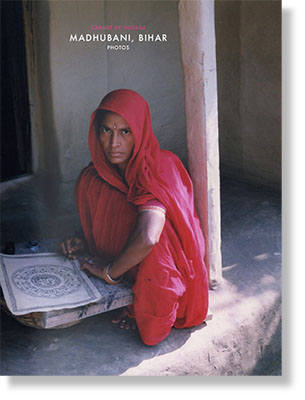samedi 27 septembre 2025
Mumbai Art Gallery Owner, Artist Booked For Obscenity
The episode fits into a long lineage of confrontations between faith, morality, and artistic liberty in India. Only earlier this year, an exhibition of MF Husain’s works in Delhi’s DAG gallery drew protests alleging sacrilege, reviving memories of the relentless criticism Husain endured through the 1990s and 2000s, a pressure that eventually drove him to leave India. Just a few months prior, the Bombay High Court delivered a ruling that underscored the other side of the debate. In a case involving the seizure of works by F N Souza and Akbar Padamsee, the court released the paintings, censuring enforcement agencies for lacking the cultural and aesthetic literacy to assess modern art. Nudity or provocation, the court reminded, cannot be simplistically equated with obscenity. Together, these episodes reveal the fraught and fragile space within which India’s art community operates - caught between legal strictures, religious sensitivities, and public morality. For Gallery Maskara, what began as an avant-garde exhibition has now snowballed into a high-profile case, thrusting once again into the spotlight the recurring debate over whether art in India can be both fearless and free.
> read more
vendredi 19 septembre 2025
Jivya Soma Mashe Book Available
jeudi 18 septembre 2025
Padma Shri awardee struggling to make ends meet in Bihar: Folk artist urges jobs in schools to promote heritage preservation among youngsters
Source Bashkar English
In Jitwarpur, famously known as the village of master craftsmen, the colourful walls speak of centuries of Madhubani painting, but the lives of its artists are marked by despair, poverty, and neglect. Despite earning Padma Shri, National Awards, and international acclaim, many artists here still struggle to secure necessities like housing, ration cards, and permanent employment. With the Bihar Assembly elections due in November, artists are once again making their demands heard. Their call is clear: recognition alone is not enough; they want sustainable livelihood, government support, and respect for their art. Bindi Devi, an artist from Jitwarpur, bluntly states: “The art to which we have dedicated our entire lives cannot even provide us with two meals a day. Politicians only come during elections, fold their hands, and disappear for five years.” Even celebrated Padma Shri awardee Shanti Devi expresses similar anguish. Despite international recognition and invitations to prestigious events like the G20, she says she still doesn’t have a ration card or a proper house. “I met Indira Gandhi, Sonia Gandhi, and even travelled to Denmark with my art, but till today, I haven’t received benefits from a single government scheme. Even a Padma Shri recipient hasn’t got a house,” she laments.
> read more
mercredi 17 septembre 2025
Jodhpur Arts Week Edition 1.0 Centers Craft in Contemporary Practice
Jodhpur Arts Week, which launches its Edition 1.0 next month, is a contemporary art festival as well as an exploration of authorship, memory and place. While the upcoming edition, which runs October 1-7, is ostensibly the first, it builds on last year’s Special Projects Edition, which, in a successful proof of concept, drew a crowd of 45,000 to Rajasthan’s Blue City. Having tapped curators Tapiwa Matsinde and Sakhshi Mahajan to helm this year’s festival, the Public Arts Trust of India (founded by philanthropist and collector Sana Rezwan) is now looking to create something more enduring: a model of cultural programming that proactively contextualizes contemporary practice through convergence with the living local heritage. Many of the international artists and designers who trekked to the edge of the Thar Desert for Jodhpur Arts Week have been working with the city’s master weavers, embroiderers, metalworkers and woodcarvers.
> read more
vendredi 12 septembre 2025
Delhi exhibition highlights India's controversial slum redevelopments
Timeme Mohanty, a three-year-old boy in Delhi, struggled to pedal his bicycle in a circle for days. When he finally succeeded, he yelled: “I rescued speed altogether.” His father, the artist Paribartana Mohanty, thought this was an absurd statement, and hence, an apt title for his solo show, now on view at the Delhi gallery Shrine Empire. The exhibition comprises 12 large paintings and three moving-image works, produced during eight years in which Mohanty documented and researched the demolition of the Kathputli art colony. “All demolitions, at least for me, are absurd acts,” the artist says. Forced evictions and demolitions targeting marginalised communities for “redevelopment” are not new in India. One such case was the Kathputli colony, a slum cluster in west Delhi, which had a rich history spanning decades. Known as one of the world’s largest settlements of street performers—puppeteers, acrobats, magicians and musicians—large parts of the colony were razed by late 2017 as part of a redevelopment drive.
> read more























